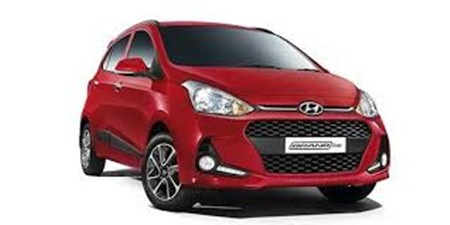
Poor Germany lost out in the football world cup, and have lost out in the automotive reliability stakes as well. The latest annual JD Power report has South Korea well ahead of the fancied Germans.
 The comparison data collection is done by the J.D. Power reliability study which is based on 13,500 UK cars.
The comparison data collection is done by the J.D. Power reliability study which is based on 13,500 UK cars.
The ranking is ordered by the number of problems per 100 cars from each brand and the top 13 rated manufacturers were all volume-selling car makers. Mercedes was the best premium brand
According to the latest J.D. Power reliability study, emerging and new technologies found in premium vehicles are resulting in more owner-reported issues.
Affordable and dependable: the new car reliability survey – based on feedback from 13,500 owners – found that models built by premium brands are not as robust as those made by volume manufacturers. Hyundai – whose cheapest model is the i10 city car – ranked the highest overall with a score of only 78 PP100. Compare that to BMW who came out with a damning 192 problems.
Suzuki came in second place with 87 PP100, followed by Kia with 94 PP100.
Of the premium-level car makers, Mercedes-Benz (124 PP100) was the highest-ranking brand, achieving a rating of 124 PP100 – but only good enough for 14th overall in the manufacturer list.
Jaguar ranked in 16th spot with a PP100 of 137, followed by Volvo with 138, Land Rover with 169 and BMW coming bottom overall with a distant score of 192 PP100.
Josh Halliburton, head of European Operations at J.D. Power said, “The main reason for the generally low ranking of premium brands was linked to the high-tech gadgetry they have that can sometimes malfunction and cause headaches for owners. Automotive systems are more complex than they’ve ever been and premium brands especially are incorporating autonomous driving building blocks – adaptive cruise control, lane keep assist, automatic braking – into their models,” he said.
“It’s imperative for manufacturers to address this issue in order to improve the level of consumer trust in the technology.”
The data showed that phone-pairing bugbears and voice recognition system failures were among the six most common problems reported by owners.
What will be more concerning to all drivers, though, is the frequency of engine and transmission problems – which can be expensive – reported in fairly new vehicles.
J.D. Power – how it works:
The survey is now in its fourth year and measures problems experienced by owners during the past 12 months.
It only reports on UK vehicles that are 12 to 36 months old.
The study examined 177 problem symptoms across eight categories.
These are:
Vehicle exterior
Driving experience
Features/controls/displays
Audio/communication/entertainment/navigation
Seats
Heating, ventilation and air conditioning
Vehicle interior
Engine and transmission – The report said there were fewer cases of these than in previous years, though a worrying amount of factory-fresh motors are suffering these issues.
Among owners who experienced no problems with their vehicle, just over half (54 per cent) said they ‘definitely will’ purchase or lease the same brand again.
Among those who experienced one of the top 10 highest-severity problems, only 37 per cent would replace their car with a model built by the same manufacturer.
(Of course these figures apply to the UK, but remember that some of the cars on the UK roads were actually built in Thailand.)





